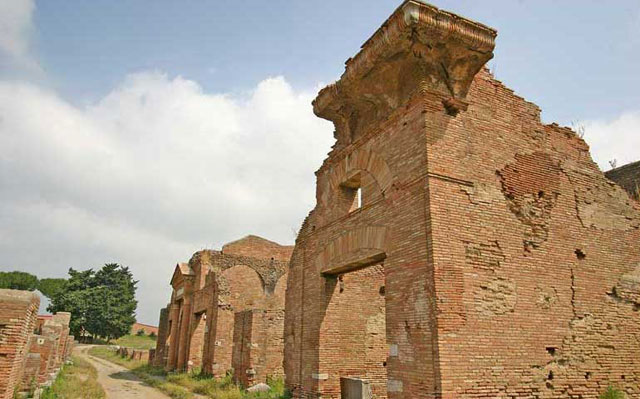

What she feels is most "delicious" is the flesh of the fruit the moment before it rots. It is because of the Holy Grail she possesses that the "city" prospered from the shadows in the first place. It is not divine retribution or anything of the sort. The one who lays waste to the most prosperous yet depraved cities of an age. She is born from a "what-if" where Nero did not meet her end alone after witnessing that thrice setting sun. Known as the "Beast of 666" and the "Enemy of God", it is said that she is the Beast that a certain Roman Emperor became. It is the Beast from the New Testament that is said to have destroyed Babylon. Born from Depravity, it is said to manifest when the most prosperous city of an era reaches its zenith, so that it may savor its malignancy. At times called the Beast of Revelations, who is in turn equated to Satan WP. Nega-Messiah, the greatest atrocity as viewed in Christianity. Nero Claudius manifested as a Beast: the great Whore of Babylon from Saint John's WP Book of Revelation WP. 2.1.5 Convergent Singularity: Lilim Harlot.2.1.3 Sixth Singularity: Lost Jerusalem.“ domus”, in William Smith et al., editor (1890) A Dictionary of Greek and Roman Antiquities, London: William Wayte.“ domus”, in Harry Thurston Peck, editor (1898) Harper's Dictionary of Classical Antiquities, New York: Harper & Brothers.(ambiguous) homeless: domo profugus (Liv.(ambiguous) to emigrate: domo emigrare (B.(ambiguous) to live in some one's house: habitare in domo alicuius, apud aliquem (Acad.(ambiguous) to turn a person out of his house, his property: expellere aliquem domo, possessionibus pellere.(ambiguous) at home in one's native country: domi (opp.(ambiguous) to escort a person from his house: deducere aliquem de domo.(ambiguous) to never appear in public: domi se tenere.(ambiguous) to never set foot out of doors: domo pedem non efferre.(ambiguous) I felt quite at home in his house: apud eum sic fui tamquam domi meae (Fam.(ambiguous) to rush out of the house: se proripere ex domo.to give, undertake a contract for building a house: domum aedificandam locare, conducere.(ambiguous) to invite some one to one's house: invitare aliquem tecto ac domo or domum suam (Liv.I am always welcome at his house: domus patet, aperta est mihi.to welcome a man as a guest in one's house: hospitio aliquem accipere or excipere (domum ad se).to shut one's door against some one): tecto, (in) domum suam aliquem recipere (opp. (ambiguous) to welcome to one's house (opp.the house walls are beginning to crack: domus rimas agit.to be a regular visitor at a house: domum frequentare (Sall.the house is not large enough for all: domus non omnes capit (χωρειν).to demolish, raze a house: domum demoliri (Top.the house suddenly fell in ruins: domus subita ruina collapsa est.5, note 'Threaten'.): domus collapsura, corruitura (esse) videtur 5, note 'Threaten'.): domus ruina impendet a comfortably-furnished house: domus necessariis rebus instructa.Carl Meißner Henry William Auden (1894) Latin Phrase-Book, London: Macmillan and Co.domus in Georges, Karl Ernst Georges, Heinrich (1913–1918) Ausführliches lateinisch-deutsches Handwörterbuch, volume 1, 8th edition, Hahnsche Buchhandlung, column 2285.domus in Gaffiot, Félix (1934) Dictionnaire illustré latin-français, Hachette, page 555.Carpenterius, Adelungius and others, edited by Léopold Favre, 1883–1887) domus in Charles du Fresne du Cange’s Glossarium Mediæ et Infimæ Latinitatis (augmented edition with additions by D.Lewis (1891) An Elementary Latin Dictionary, New York: Harper & Brothers Lewis and Charles Short (1879) A Latin Dictionary, Oxford: Clarendon Press Walther von Wartburg (1928–2002), “domus”, in Französisches Etymologisches Wörterbuch (in German), volume 3: D–F, page 135.
#Alter domus wikipedia series#
De Vaan, Michiel (2008), “domus, dominus”, in Etymological Dictionary of Latin and the other Italic Languages (Leiden Indo-European Etymological Dictionary Series 7), Leiden, Boston: Brill, →ISBN, pages 177-179.→ Proto-West Germanic: *dōm ( see there for further descendants some were later influenced by French ).prō domō ( “ for one’s own home or house serving the interests of a given perspective or for the benefit of a given group ” ).extrā domum ( “ placed outside of the house refers to a possible result of Catholic ecclesiastical legal proceedings when the culprit is removed from being part of a group like a monastery ” ).domō ( “ from home, out of the house at home, in the house ”, adverbial form ).domum ( “ home, homewards, to the house ”, adverbial form ).domī habeō ( “ I have at home, I have in abundance, I am provided with ”, colloquial ).domī ( “ at home, in the house ”, adverbial form ).


 0 kommentar(er)
0 kommentar(er)
